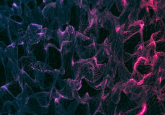The biotech bi-weekly: new solutions for cell culture media design, PCR and drug screening

Hello and welcome to this edition of the Biotech bi-weekly, a fortnightly listicle bringing you a rapid review of the latest happenings and developments in the biotech industry! As ever with a new feature, we would love to hear your thoughts on how we could update it to be as useful as possible, so if you have any pointers, please contact me at [email protected].
Now, on with the update!
Products
New platform for cell culture media design
Nucleus Biologics (WI, USA), a cell culture media and services company, has released QuickStart MediaTM, a series of ‘pre-optimized formulations’ designed with the intention of enabling researchers to quickly design a custom media from an advanced starting point.
Researchers can select one of Nucleus Biologics’ research-use-only formulations to be sent as a sample to test in their workflow, before requesting customizations to the media.
Read the full release here >>>
AI-designed drug candidate selected for development
DeepCure (MA, USA), an AI-forward drug discovery company, has selected its first candidate to progress with, aiming to enter clinical trials in 2025. DeepCure uses machine learning alongside physics-based computational tools to identify interaction sites on drug targets and subsequently design compounds to target these sites that are possible to synthesize.
The drug candidate selected, called DC-9476, is an inhibitor of Brd4 that binds to the BD2 domain of the protein, inhibiting the expression of a series of cytokines that can be overexpressed in autoimmune diseases because of epigenetic histone modifications. The candidate has demonstrated promising efficacy both in combination and direct comparison with current standard-of-care therapies that target cytokine-related pathways in preclinical models of autoimmune disease.
Read the full release here >>>
New plate designed to increase PCR replicability
Azenta Life Sciences (MA, USA), a biotech company for basic lab solutions, has released a new plate range designed to improve the repeatability of PCR experiments.
The plates are constructed from two materials: polypropylene for the tubes to provide the sample with a chemically inert environment for containment and to deliver rapid heat transfer and a polycarbonate frame to reduce thermal expansion and evaporation of the sample. This has two effects – reducing evaporation-based inconsistencies and reducing sample sizes needed, saving on reagent costs. These claims have been supported by a recent study, presented in this poster.
Improved in vitro model analysis with new imaging systems for drug candidate screening
Newcells Biotech (Newcastle, UK), a drug discovery partner that develops in vitro models and assay services to screen drug candidates and improve the prediction of in vivo human outcomes, has released a new imaging suite to increase its high-throughput and high-content screening capabilities for its array of in vitro models.
The suite includes an ImageXpress® Confocal HT.ai High-Content Imaging System to enable high-content imaging and highly multiplexed assays, a ZEISS Axio Observer system with Apotome 3 for imaging of multiple sample formats and an ImageXpress Pico Automated Cell Imaging System for a wide range of assays. This has been coupled with the release of a new Fibroblast-to-Myofibroblast Transition (FMT) assay to enable the company to provide rapid assessment of the efficacy of anti-fibrotic drug candidates in their in vitro models.
Read the full release here >>>
 Top tips to optimize your 3D cell culture workflows
Top tips to optimize your 3D cell culture workflows
John Szilagyi is a Principal Scientist at Bristol Myers Squibb, working in nonclinical development and investigative toxicology, with a focus on the development of models to study teratology: the investigation of defects in developing fetuses and their causes. His models primarily involve the use of 3D cultures and microphysiological systems generated from multi-species induced pluripotent stem cells.
Partnerships
New partnership offers research infrastructure complete with digital lab management platform
eLabNext (MA, USA) has partnered with US Lab Partners (MA, USA), which provides life science companies with labs, facilities, and environment, health and safety programs, to equip expand US Lab Partner’s offerings to include their Digital Laboratory Platform, including their Laboratory Inventory Management System (LIMS) and Electronic Lab Notebook (ELN). This will enable clients of US Lab Partners to access a platform that supports laboratory workflows, sample management and compliance.
Read the full release here >>>
 Business of BioTechniques 2024
Business of BioTechniques 2024
This feature highlights the latest news and industry collaborations, from products and services to important upcoming events and key information in the biotech industry.
People and publications
AACR CEO recognized for her outstanding contribution to cancer research
AACR (PA, USA) CEO Margaret Foti has been awarded the 2024 Beacon Award for Women Leaders in Oncology. The award is presented to outstanding women leaders in health and life sciences who have significantly impacted cancer treatment, detection and diagnosis for patients worldwide.
Foti is being recognized for her 40+ years of service as the CEO of AACR, during which time she has overseen the expansion of its membership from 3000 to 58,000, its journal portfolio from one to ten and the development of its annual meeting, which saw its most attended event reach 23,200 attendees this year.
You can read more about Foti’s achievements here >>>
New Chief Development Officer takes the helm at cancer diagnostics company
Helio Genomics (CA, USA), an AI-driven cancer diagnostic development and technology company, has appointed Eric Ariazi as its Chief Development Officer.
Ariazi has 25 years’ worth of experience, with recent specialized experience in epigenetic drug development and next-generation sequencing assay development. With this extensive expertise, Ariazi is keen to contribute to the company’s goal of improving technologies for early cancer detection.





